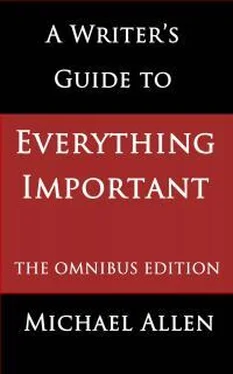For what it is worth, here is my twopennorth.
The young and ambitious writer should examine the motivation of her ambition carefully, and would be well advised to identify its cause.
Identifying the cause of ambition is certainly possible, at least in my own experience. Hint: consider your fantasies. And here I speak not of sexual fantasies, but of fantasies relating to success as a writer. Thinking about the situation which will arise from achieving your imagined success will, I believe, give you some guidance as to whom, or which group of people, you seek to impress.
Having identified the impressees, so to speak, you may then be able to work back and identify the events and circumstances which made you feel inferior to that individual or group. Those events and circumstances are likely to lie in childhood or adolescent memories. And then you can ask yourself, with the benefit of hindsight and some adult insight, whether the sense of inferiority which you then felt was actually justified or not. And even if it was justified, and not based on some misapprehension, does it really require that you should devote endless hours of time, money, and effort, sacrificing much else along the way, in order to ‘prove’, through achieving success as a writer, that you are no longer inferior?
Such self-analysis may prove valuable. It certainly did for me.
The completion of such analysis does not necessarily mean that you have to abandon all interest in writing. Far from it. You may now be able to undertake writing with a more relaxed attitude towards the outcome, taking a greater pleasure and satisfaction in the actual work. Who knows – your work may be all the better for it.
A final thought. I would not wish you to think that Beran Wolfe regarded all creative work as selfish, antisocial, and not conducive to long-term happiness. Not at all. He himself, for example, was a sculptor.
‘There is,’ Wolfe declared, ‘a certain quantum of creative energy in every human being which is not absorbed by the business of a work-a-day world. Even people who are engaged in some eminently satisfactory occupation have some creative energy left over.... We must all create something – or class ourselves as human vegetables. No one can be happy who does not find some channel for this creative energy.’
Well, there’s a glimmer of light for you.
It is, perhaps, reasonably human to feel a creative urge, and possibly a little bit of ambition to go with it. You just shouldn't let it get out of hand. That’s all.
PART 4: SUCCESS – How do we achieve it?
4.1 The secret formula for success
In my book The Truth about Writing, first published in 2003, I provided what every purchaser of a book on writing is looking for: the secret of success. What is more, I revealed the secret of success in precise mathematical terms! Wow! I gave my readers a scientific formula, no less, one which explained exactly what it is that makes a writer a success overnight! Hot damn. And here it is again, just in case you missed it the first time around.
We now know that there are several different benefits which can be derived from writing – the chief ones being money, fame, and literary reputation – and that different individuals will wish to achieve different combinations of these. So, feel free to do your own pick and mix for defining the term ‘success’. This won’t matter a bit, because the mathematical formulae, or expressions, that I shall be giving you, will hold good whatever particular definition of success you have chosen.
You will doubtless be familiar with the use of the equals sign, as in 2 + 2 = 4. But you may not, perhaps, be familiar with another mathematical symbol, written in the form of two colons, as in X :: Y. When used like that, the :: sign means ‘varies as to’. The :: symbol was introduced by William Oughtred in a book published in 1631.
How might we use this symbol in relation to writing and publishing? Well, we might say that the thickness of a book varies as to the number of pages; which means that the more pages there are, the thicker the book is. We could also express this statement as T :: N, where T stands for thickness and N is the number of pages.
Now let us turn our attention to success inasmuch as it concerns writers, and try to determine the factors which create success. In other words, we need to find the missing part of the expression S :: ?
We might begin by making a list of all possible factors that govern success, and these might include the following: talent; hard work; connections (i.e. knowing influential people); perseverance; good reviews; a powerful agent; a major publisher; and so on.
We might try out a number of combinations of these, and see how they look in the light of experience. So, for instance, we might say that
S (success) :: T (talent)
Which means that the more talented you are, the more successful you inevitably become.
This is nice and simple, but unfortunately it is complete nonsense. There are lots of talented people about who are not successful (many of them, no doubt, are reading this book); and, conversely, there are lots of published writers whose talent is barely discernible but who are very successful indeed. (You have your list; I have mine.)
Just in case you think I am being grumpy and graceless again, let me quote the actor John Nettles, from his autobiography Nudity in a Public Place . Nettles was in turn quoting a friend of his, whom he described as ‘a great literary figure and a major celebrity’. This unnamed individual remarked to Nettles: ‘Nothing is more common today than successful men with no talent.... Success and celebrity do not necessarily depend on talent in these dog days and it is a good thing you never ever believe they do, otherwise you might miss out on the joke of the century.’
So, to say that S :: T is clearly unacceptable, and we need to refine our formula a little further. We might try, for instance:
S :: T + HW (hard work)
Personally I don’t think that is satisfactory either. An issue of The Author carried an article by a man who had written ten complete novels between the ages of 18 and 34 without selling any of them. Then he took up meditation, which he claimed did wonders for clearing his mind, and finally he did manage to sell his eleventh book. This man evidently had some talent, and an enviable capacity for hard work, but the two together were not immediately effective.
One can continue with almost endless permutations, such as:
S :: T + HW + WYK (who you know)
And so on ad infinitum. But none of these is ultimately satisfactory, at least to me; they all seem to me to be based on false assumptions.
As far as I am concerned, there is only one formula which embodies the truth about the relationship between writers and success, and that is this:
S :: C
And what, you ask, is the mysterious C? Well, it isn’t the speed of light, as in Einstein’s famous equation. What C stands for, in this context, is Circumstance.
And what is the definition of Circumstance?
Circumstance is a factor which some might call chance, fate, luck, serendipity, or karma. But none of those words conveys the necessary flavour of the word Circumstance in relation to writing; they are not appropriate synonyms.
Take the word ‘luck’ for example. I am inclined to argue that, to some extent, you make your own luck. The golfer Gary Player was once told by a rival that he was always lucky. ‘Yes,’ said Player. ‘And you know what? The more I practise, the luckier I get.’
So luck won’t do, and neither will any of the other suggested synonyms.
The right and proper definition of the term Circumstance, in the context of our formula for success, is ‘everything that you cannot control, or even influence’.
Читать дальше












